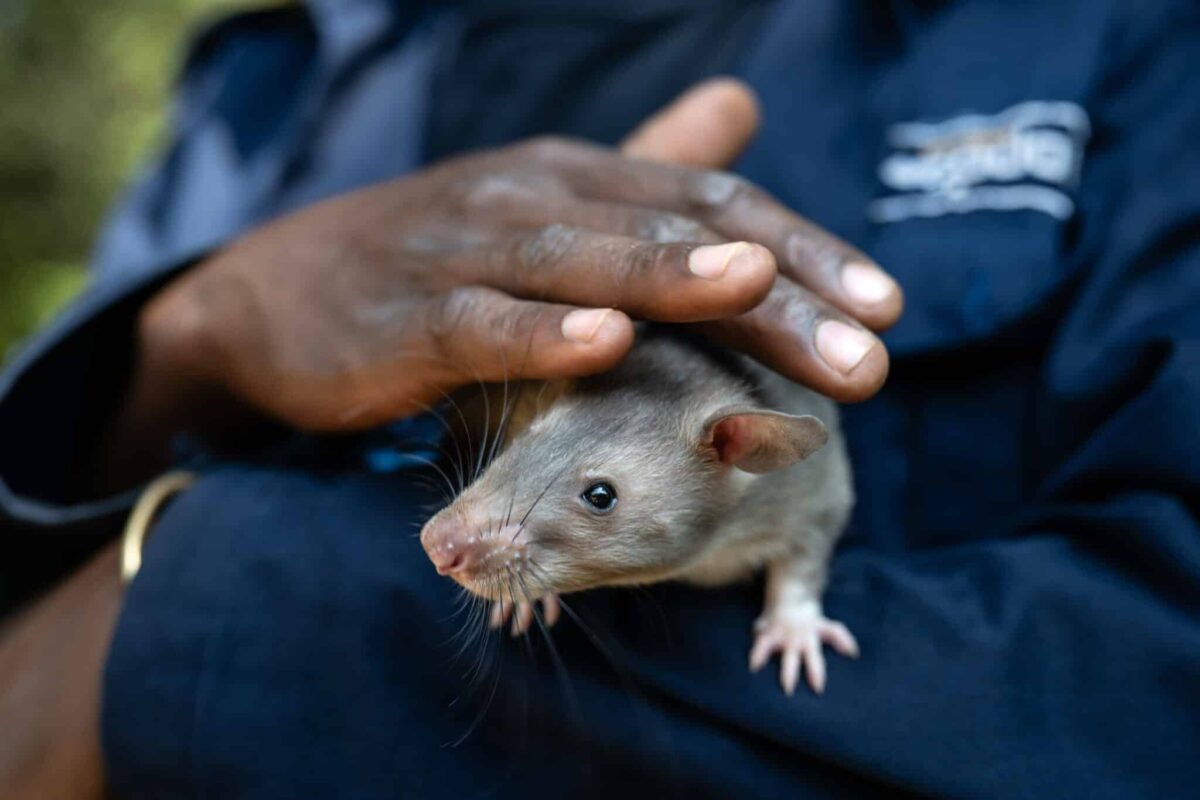At APOPO, we believe that heroes come in all sizes. Some of the most remarkable ones happen to be rats. Our HeroRATs are trained to use their exceptional sense of smell to detect landmines and tuberculosis (TB), contributing to public health and safety in places where these challenges persist. But how does a small animal become capable of such critical work? The journey begins long before their first mission, with careful breeding, thoughtful training, and a strong commitment to animal welfare.
In this article, we will take you behind the scenes to show how HeroRATs are raised and trained at our dedicated Training Center in Morogoro, Tanzania. We will share examples of how they are deployed in the field, explore the important role they play in humanitarian work, and explain the people and principles that make it all possible.
APOPO is a non-profit organization with a unique mission: to develop scent detection technology that addresses global humanitarian challenges. Since 2000, our HeroRATs have been deployed to detect landmines and other explosive remnants of war, making land safe for communities. They also help fight TB by screening sputum samples quickly and reliably, particularly in high-burden, low-resource settings. The science is complex, but the idea is simple: train animals that are often overlooked and equip them to do work that saves lives.
A Gentle Beginning
The first weeks of a HeroRAT’s life are all about comfort and security. Pups stay with their mother and littermates until around four weeks of age, allowing them to grow in a stable and undisturbed environment. As they begin to open their eyes to the world, they are gently introduced to human handlers through a process called habituation and socialization. This is a vital step that builds trust and prepares them for formal training.
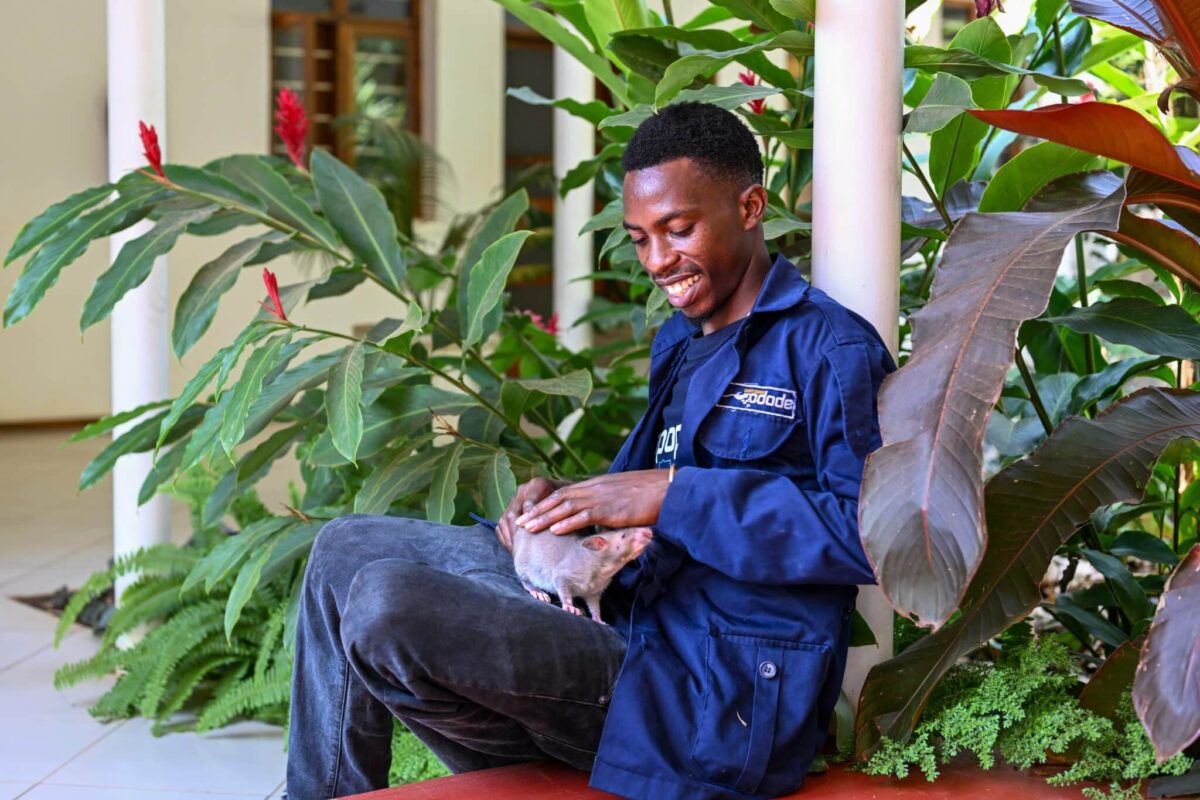
At around ten weeks, the young rats are weaned and move out with their siblings to start their official training program. Over the course of approximately one year, they develop the skills they will need to save lives, whether by detecting landmines or sniffing out tuberculosis.
Training to Detect Landmines
The path to becoming a Mine Detection Rat, or MDR, is structured and carefully monitored. Each rat learns to detect the scent of explosives with a high level of accuracy, using their keen sense of smell and natural agility to navigate training fields designed to simulate real-world conditions.
In 2024, for example, seventy young rats took part in MDR training. Improvements to the training environment, including expanded areas with permanently buried scent targets, helped increase efficiency. As a result, training time was reduced by an average of four months, and only 4.3 percent of rats left the program early.
Despite weather challenges that year, the rats collectively searched nearly 478,000 square meters of training ground, detected over 19,000 buried explosives, and received more than 16,000 banana rewards. Twenty-three rats completed the full program and earned internal accreditation. Of these, twenty were deployed to Cambodia, where, in just six months, they helped clear close to 300,000 square meters of land and located 75 landmines and explosive remnants of war.
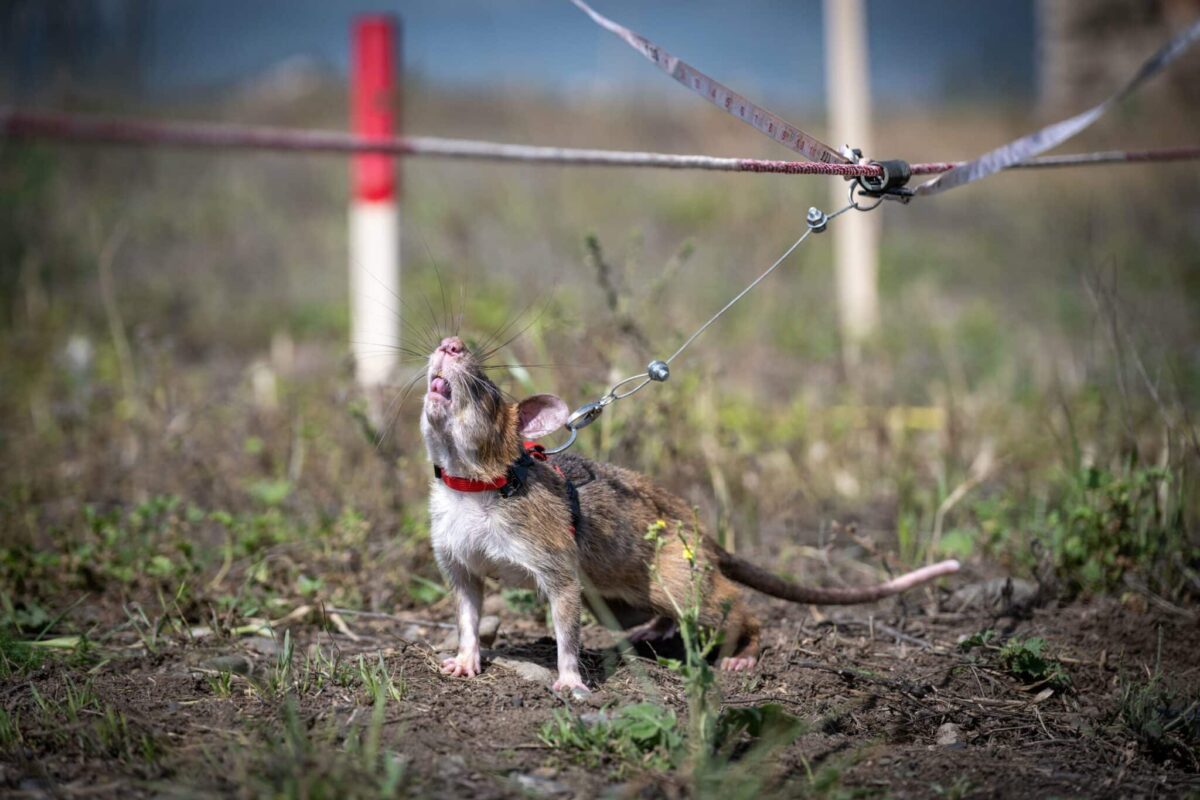
Fighting Tuberculosis, One Sample at a Time
HeroRATs also support global health efforts by detecting tuberculosis. In regions where TB remains a leading cause of death and diagnosis is often delayed or missed, trained rats can rapidly and accurately identify TB in human sputum samples.
Importantly, the rats are used as a second-line method of detection. They are deployed to re-screen samples that have tested negative at partner clinics through conventional smear microscopy, even though the individuals who provided those samples continue to show symptoms of TB. In these cases, HeroRATs act as a vital safety net, catching infections that might otherwise go untreated and helping ensure that more patients receive the care they need.
In 2024, eighteen rats successfully passed internal testing to become accredited TB Detection Rats. That same year, we celebrated the retirement of Carolina, one of our longest-serving TB rats. Over nearly seven years, Carolina screened over 209,000 samples and helped identify more than 3,100 TB-positive patients who were initially missed by health clinics. She now lives in comfortable retirement at our Training Center, continuing to receive attentive care.
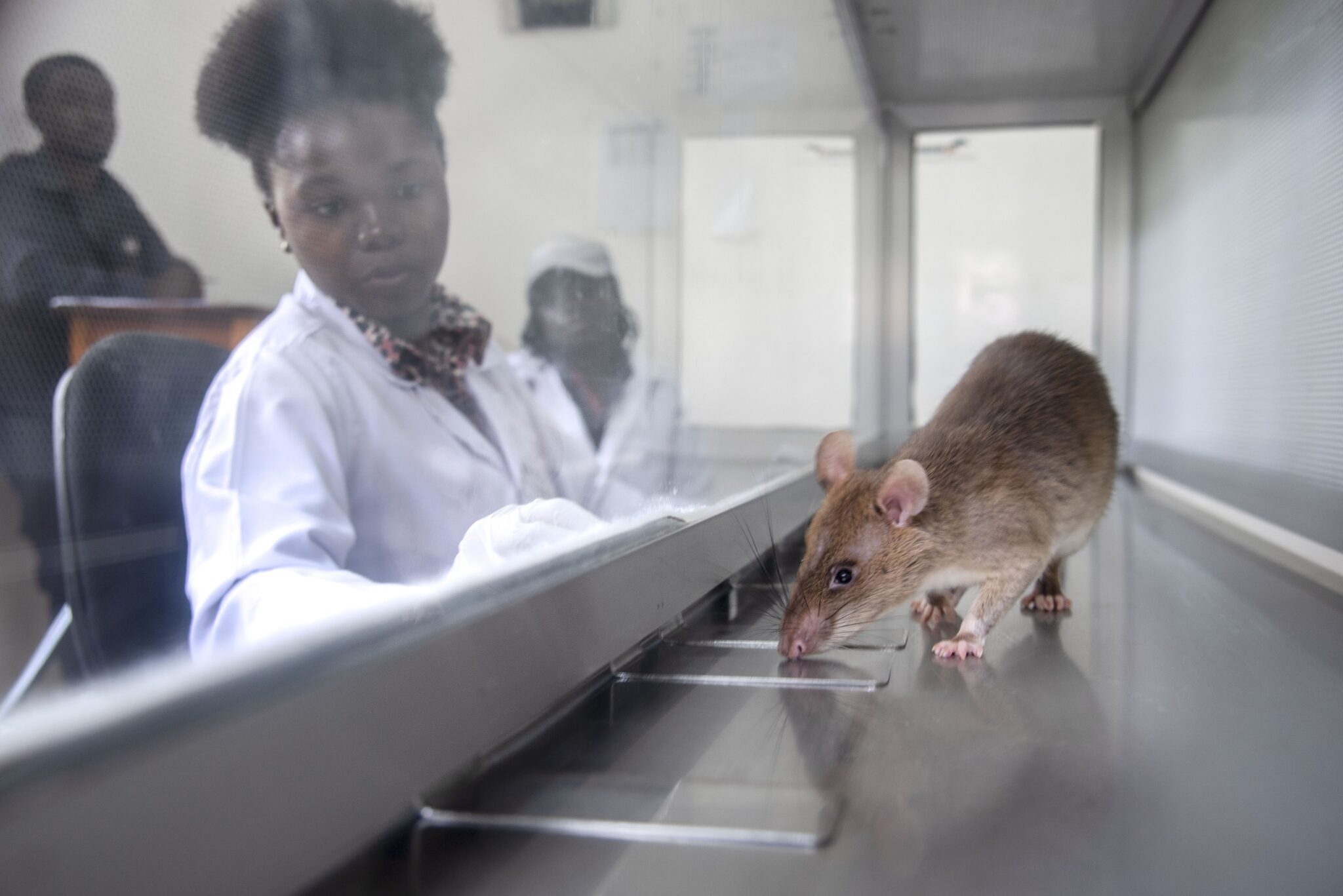
A Commitment to Animal Welfare
At the heart of APOPO’s work is a strong commitment to animal welfare. In 2024, this commitment was formally adopted as a Core Value across the organization, reinforcing the belief that the health and wellbeing of our rats is essential to both their performance and their quality of life.
Animal welfare at APOPO is guided by the internationally recognized Five Domains model, which ensures the animals experience positive conditions related to nutrition, environment, health, behavior, and mental state. In practical terms, this means our rats receive a species-appropriate diet, clean and spacious housing, regular veterinary care, and daily opportunities for physical activity and mental stimulation.
Training is done using positive reinforcement methods, such as clicker training and food rewards, to ensure that the rats are motivated, never forced. Enrichment tools and activities are rotated regularly to promote natural behaviors like foraging, climbing, digging, and exploring. Our rats are also closely monitored by trained caregivers who track their physical and emotional wellbeing through digital health records, enabling quick response to any changes in condition.
Rats that retire from operational work continue to receive expert care for the rest of their lives. Retirement includes a slower pace of life, continued enrichment, and social interaction with both rats and humans. This approach ensures that every HeroRAT is treated with respect and kindness throughout their life, from their first day of training to their final years in retirement.
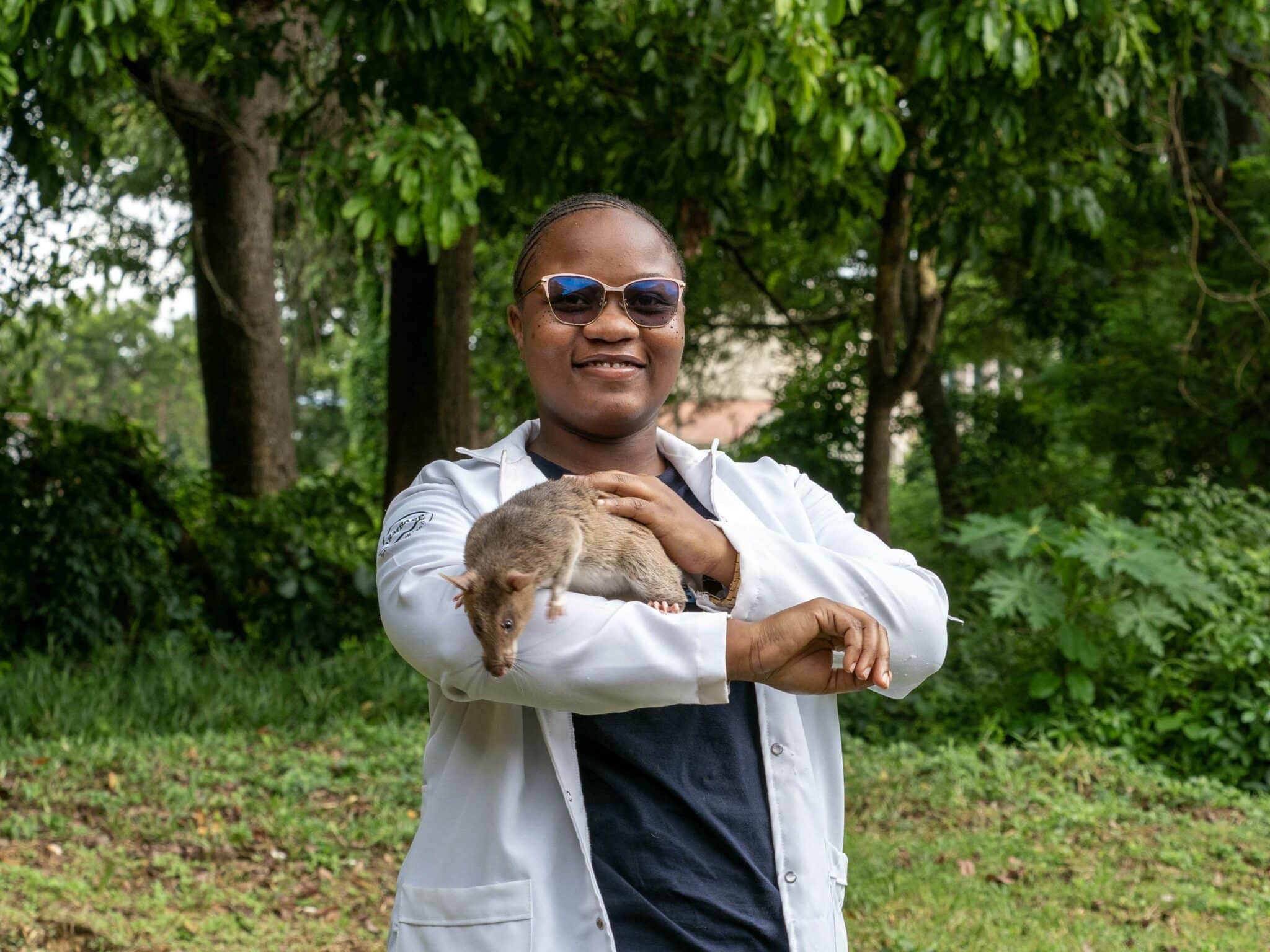
As Dr. Prisca Greyson, APOPO’s Animal Health Coordinator, explains, “Our rats’ performance depends on their health and wellbeing. Thanks to our dedicated teams, these incredible animals stay in top condition and continue to make a real impact. I’m proud to be part of a mission where rats are healthy, happy, and saving lives.”
Building Skills and Sharing Knowledge
Training HeroRATs is a collaborative effort. Our staff includes animal behavior experts, trainers, veterinarians, and field professionals who work together to share knowledge and refine best practices. In 2024, we welcomed new trainers and deminers from Zimbabwe, hosted six interns and visiting scholars in Morogoro, and conducted training workshops across APOPO’s programs.
We also launched outreach efforts to raise public awareness, including sending Ambassador HeroRATs to a new educational program at the Maryland Zoo. These ambassador rats help show the public how scent detection animals contribute to global challenges, from post-conflict land clearance to public health diagnostics.
Every Hero Starts Somewhere
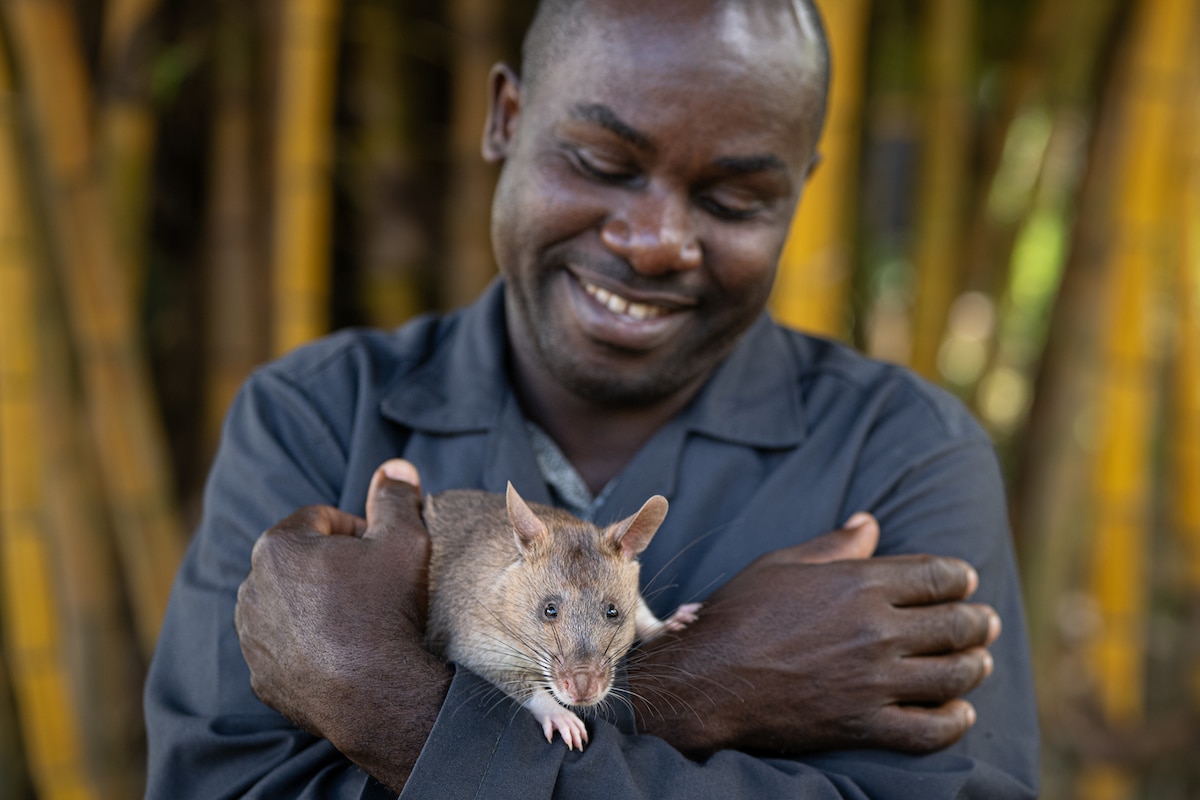
The making of a HeroRAT is a process built on patience, precision, and care. From their first days as pups to their final missions in the field or lab, these animals contribute to safer communities and more effective healthcare.
Their journey is only possible because of the people and partners who support their work, people who believe that even the smallest creatures can help solve some of the world’s biggest problems.
Adopt a HeroRAT. Empower a lifesaver.

